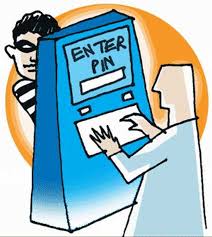
Cyber Fraud in Banking industry
CYBER FRAUD IN BANKING INDUSTRY
Cybercrime is defined as any illicit conduct carried out on a computer or via the internet. In other terms, digital misbehavior is referred to as cybercrime, in which the criminal engages in a variety of wrongdoings such as money transfers and withdrawals through illegal access to a computer or any other electronic device and the Internet.
The banking sector delivers an extensive variety of products and services for the people it serves, including internet banking and payment card services, as well as mobile banking, online banking, RTGS, ATMs as smart cards, and other kinds of internet-based banking.
"A calculated act of negligence or commission by any individual, executed out in the context of a financial transaction or in the accounting records of accounts retained either manually or under electronic systems in banks, leading to into illicit gain to any individual for a brief duration or otherwise, whether or not there is any monetary loss to the bank.," stated the Reserve Bank of India (RBI).
Types of cybercrime in the financial sector
Phishing assaults: By enforcing preventative measures like two-factor authentication and punishing offenders, cyber law assists banks in combating phishing assaults.
Ransom ware assaults: By permitting legal action against hackers and encouraging preventive measures like routine software upgrades, cyber law frameworks help banks deal with ransom ware assaults.
Spamming is the practice of sending impromptu communications to a large audience in an attempt to limit its reach to those who might not be interested.
ATM Scanner and Goal Offer Mistakes: By installing a device on the keypad that duplicates the same function, this is the most advanced way to trade in an ATM or point-of-sale system.
Data breaches: Unauthorized persons accessing, viewing, or stealing private or sensitive data is a data breach.
Laws pertaining to cybercrime: the Information Technology Act of 2000
certain legislative provisions establishing legal rights and their related obligations to bankers and customers have been inserted into the IT Act. The Act's criminal sanctions would apply if such prohibitions were broken.
Sections 66C and 66D of the IT Act additionally provide severe measures for identity theft and technological trickery. Acts such as computer assaults, internet fraud, and other digital frauds are penalized under both provisions.
For instance, section 66 of the IT Act addresses phishing. In addition, Phishing may also be prosecuted under the Indian Penal Code's sections on cheating (Section 415), mischief (Section 425), forgery (Section 464), aided and abetted (Section 107), or under the terms of Bhartiya nyaya sanhita 2023.
In a recent ruling in Bombay High Court, Jaiaiprakash Kulkarni & Anr v the Banking Ombudsman & Ors, 2024: BHC-OS: 8627-DB), Writ Petition No.1150 Of 2023, the court overturned the banking ombudsman's order and ordered the Bank of Baroda to reimburse the petitioners for the ₹76, 90,017 that was fraudulently debited, plus interest starting on October 2, 2022, and continuing until the payment date. The Bombay High Court found that the Banking Ombudsman had failed to properly investigate whether the debit transactions had been made with the petitioners' prior authorization. The Impugned Order was set aside because the Petitioners were not informed about the addition of beneficiaries by message or email.
Conclusion
Ensuring a safe and reliable digital environment depends heavily on the interaction between cyber legislation and the banking sector. Cyber risks appear to be developing and becoming more complex, based on recent patterns. To safeguard themselves and their clients from cybercrimes, banks must follow regulations outlined in cyber laws and recommendations like those issued by the RBI.











comments